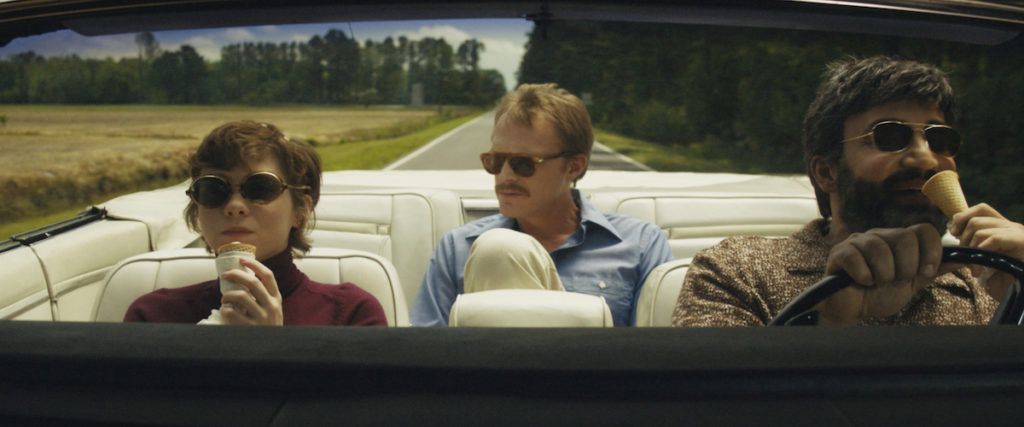NOVEMBER 27, 2020
Thirteen years after his most recent film, 2007’s “Towelhead,” Alan Ball returns to feature filmmaking with “Uncle Frank,” a comedy/drama which, like most of his work, highlights themes relevant to the LGBTQ community. Primarily known for his creation of two acclaimed HBO series, “Six Feet Under” and “True Blood” won an Academy Award for writing the Sam Mendes-directed “American Beauty” in 1999.
With “Uncle Frank,” which is now streaming on Amazon Prime, Ball sets up the story focusing on the Bledsoe family as seen through the eyes of the youngest member of that family, Beth (Sophia Lillis, of the “It” films). In a prologue set in 1969, Beth (then known as 14 year-old Betty) watches as her grandfather, Daddy Mac (Stephen Root), cruelly dismisses a gift from her beloved uncle Frank (Bettany), a hurtful act that only underlines the estrangement her uncle has from the family. Still Betty adores Uncle Frank who reminds her that she can be anything she wants to be.
Betty takes his advice, and four years later, she rechristens herself as Beth and enrolls in New York University, the same school at which Frank teaches. Deciding to surprise her uncle one night at his apartment, Beth gets a real surprise when she realizes that Frank is not living with a woman (as his family believes) but with a man, a Saudi immigrant named Walid Nadeem (Peter Macdissi), whom everyone calls “Wally.” When Frank owns up and comes out to her, Beth, who feels like an outsider in her family as well, totally understands.
Then Frank gets the call. Mammaw Bledsoe (Margo Martindale) delivers the news that Daddy Mac has died, and that Frank and Beth are expected to come back to South Carolina for the funeral. Frank and Beth hit the road but soon notice that there is a strange car following them. It’s Wally, wanting to come along to meet Frank’s family. This is the moment when the script began to fly off the rails for me, as Wally is presented as a gay man who fled Saudi Arabia to avoid potential execution. Why would he think there would be no problem in introducing himself as Frank’s lover? It’s the first of many instances where characters do out-of-character things just to advance the plot.
When the film returns back to the family funeral, the cliches begin to pile up. Frank, a recovering alcoholic, must face the stress of coming out to his family. You can probably write for yourself just what happens next. The same goes for a will-reading scene for which you will easily anticipate every beat. There is also a crying-at-the-gravesite scene which you’ve seen a hundred times before, but Bettany is so effective in his genuine grief for a man who despised him that he makes the scene work.
Lillis provides a charming presence throughout, and Macdiddi is delightful as Wally, though he does play the character a bit broadly. As the family, though, Ball has cast a stellar group of character actors but has written them little material with which they can work — besides Root and Martindale, largely wasted are Judy Greer, Steve Zahn and the great Lois Smith who plays Aunt Butch. Really? Even the character names are too on-the-nose.
But at least there’s Paul Bettany who can allow you to ignore the plot contrivances and focus on his character’s journey from a safe closeted life to confronting his own self-hatred and finally to slowly begin a bit of self-acceptance. There’s a wonderful movie somewhere inside that character, but “Uncle Frank” isn’t it.
GRADE: B-
This article was originally published at Next Best Picture.












